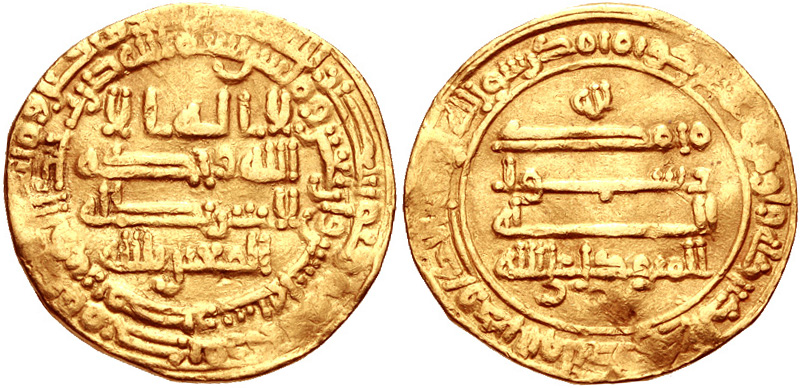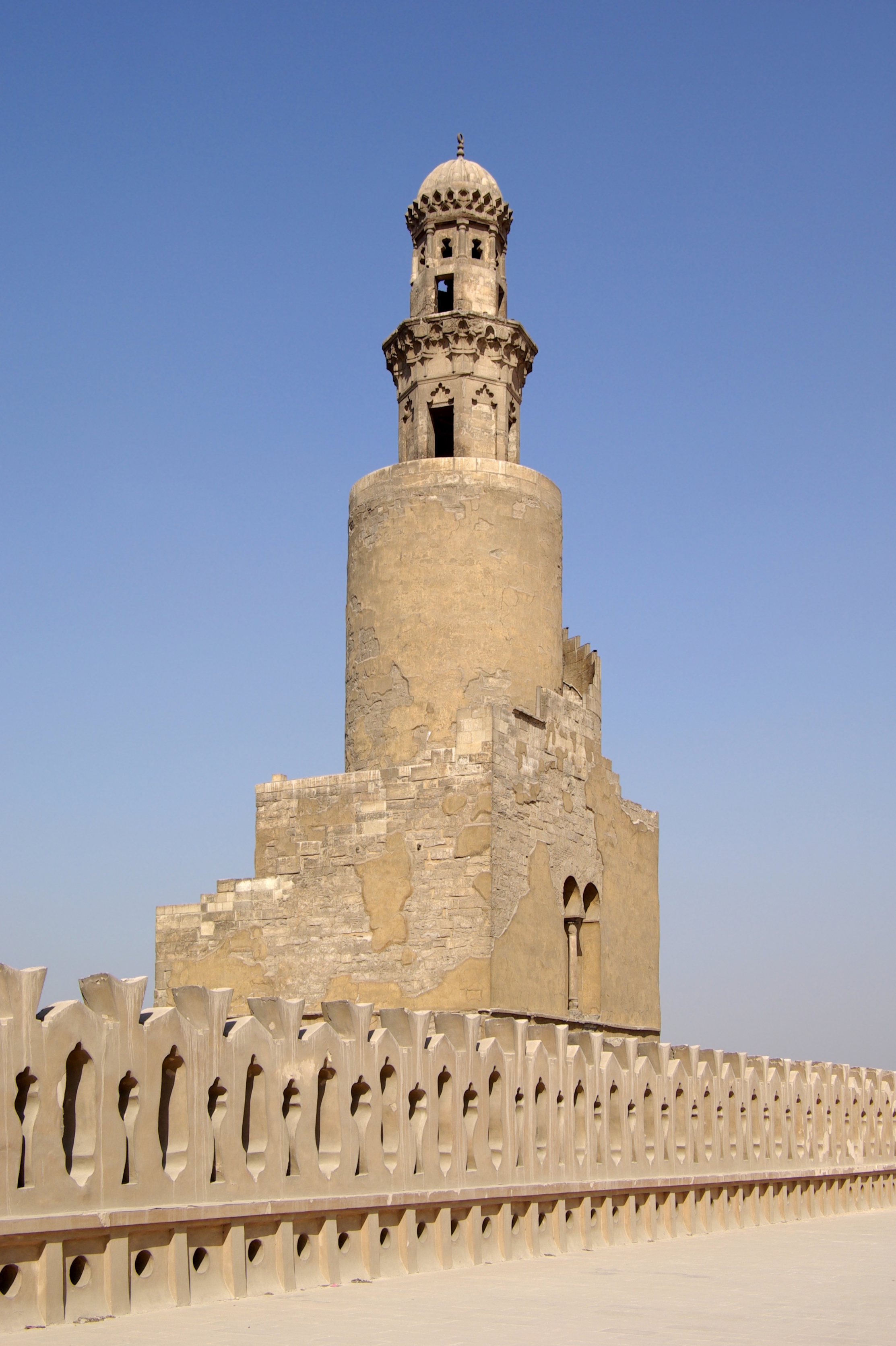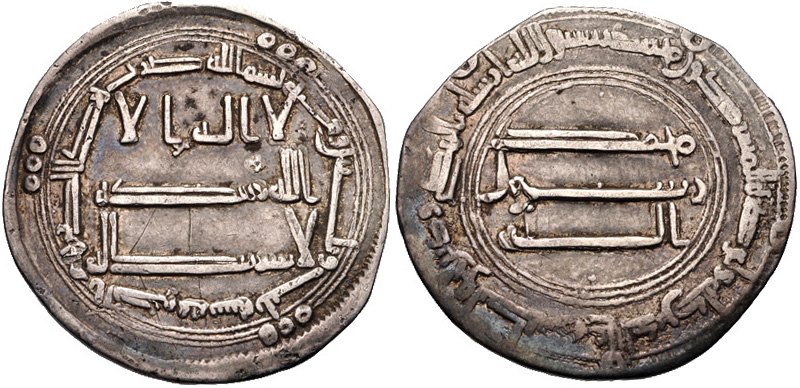|
Yahya Ibn Aktham
Abu Muhammad Yahya ibn Aktham ( ar, أبو محمد يحيى بن أكثم, died 857) was a ninth century Arab Faqīh, Islamic jurist. He twice served as the Qadi, chief judge of the Abbasid Caliphate, from ca. 825 to 833 and 851 to 854. Career Yahya was born in Merv, Marw in Greater Khorasan, Khurasan and was a member of the Banu Tamim; he himself claimed descent from the judge Aktham ibn Sayfi. He studied ''hadith'' and ''fiqh'' in Basra. In 817-8 he was appointed as ''qadi'' (judge) of Basra, and he held that position until 825. Following his dismissal from Basra, Yahya was selected by al-Ma'mun () to serve as chief justice (''qadi al-qudat''). Yahya enjoyed strong relations with the caliph and became an immensely influential member of the administration, with all decisions made by the viziers being reportedly submitted to him for approval first. In 831 he participated in al-Ma'mun's Al-Ma'mun#Wars with Byzantium, campaign against the Byzantines and was put in command of a ... [...More Info...] [...Related Items...] OR: [Wikipedia] [Google] [Baidu] |
Abbasid Caliphate
The Abbasid Caliphate ( or ; ar, الْخِلَافَةُ الْعَبَّاسِيَّة, ') was the third caliphate to succeed the Islamic prophet Muhammad. It was founded by a dynasty descended from Muhammad's uncle, Abbas ibn Abdul-Muttalib (566–653 CE), from whom the dynasty takes its name. They ruled as caliphs for most of the caliphate from their capital in Baghdad in modern-day Iraq, after having overthrown the Umayyad Caliphate in the Abbasid Revolution of 750 CE (132 AH). The Abbasid Caliphate first centered its government in Kufa, modern-day Iraq, but in 762 the caliph Al-Mansur founded the city of Baghdad, near the ancient Babylonian capital city of Babylon. Baghdad became the center of science, culture and invention in what became known as the Golden Age of Islam. This, in addition to housing several key academic institutions, including the House of Wisdom, as well as a multiethnic and multi-religious environment, garnered it a worldwide reputation as the ... [...More Info...] [...Related Items...] OR: [Wikipedia] [Google] [Baidu] |
Al-Mutawakkil
Abū al-Faḍl Jaʿfar ibn Muḥammad al-Muʿtaṣim bi-ʾllāh ( ar, جعفر بن محمد المعتصم بالله; March 822 – 11 December 861), better known by his regnal name Al-Mutawakkil ʿalā Allāh (, "He who relies on God") was the tenth Abbasid caliph. He succeeded his brother, al-Wathiq, and is known for expanding the empire to its maximum extent. He was deeply religious, and is remembered for discarding the Muʿtazila, ending the Mihna (a period of persecution of Islamic scholars), and releasing Ahmad ibn Hanbal. He is also known for his tough rule, especially with respect to non-Muslim subjects. He was assassinated on 11 December 861 by the Turkic guard with the support of his son, al-Muntasir, marking the beginning of the period of civil strife known as the "Anarchy at Samarra". Early life Al-Mutawakkil was born on February/March 822 to the Abbasid prince Abu Ishaq Muhammad (the future al-Mu'tasim) and a slave concubine from Khwarazm called Shuja. His ... [...More Info...] [...Related Items...] OR: [Wikipedia] [Google] [Baidu] |
Pederasty
Pederasty or paederasty ( or ) is a sexual relationship between an adult man and a pubescent or adolescent boy. The term ''pederasty'' is primarily used to refer to historical practices of certain cultures, particularly ancient Greece and ancient Rome. In most countries today such relationships are illegal. The local age of consent determines whether a person is considered legally competent to consent to sexual acts, and whether such contact is child sexual abuse or statutory rape. An adult engaging in sexual activity with a minor may be considered abusive by medical authorities for a variety of reasons, including the age of the minor, the likelihood of the minor developing one or more mental disorders, such as post-traumatic stress disorder, physical injury to the minor, and the minor's propensity for further victimization in adulthood. Etymology and usage ''Pederasty'' derives from the combination of grc, παίδ-, paid-, boy, child (stem) with grc, ἐραστής, er ... [...More Info...] [...Related Items...] OR: [Wikipedia] [Google] [Baidu] |
Iraq
Iraq,; ku, عێراق, translit=Êraq officially the Republic of Iraq, '; ku, کۆماری عێراق, translit=Komarî Êraq is a country in Western Asia. It is bordered by Turkey to Iraq–Turkey border, the north, Iran to Iran–Iraq border, the east, the Persian Gulf and Kuwait to the southeast, Saudi Arabia to the south, Jordan to Iraq–Jordan border, the southwest and Syria to Iraq–Syria border, the west. The Capital city, capital and largest city is Baghdad. Iraq is home to diverse ethnic groups including Iraqi Arabs, Kurds, Iraqi Turkmen, Turkmens, Assyrian people, Assyrians, Armenians in Iraq, Armenians, Yazidis, Mandaeans, Iranians in Iraq, Persians and Shabaks, Shabakis with similarly diverse Geography of Iraq, geography and Wildlife of Iraq, wildlife. The vast majority of the country's 44 million residents are Muslims – the notable other faiths are Christianity in Iraq, Christianity, Yazidism, Mandaeism, Yarsanism and Zoroastrianism. The official langu ... [...More Info...] [...Related Items...] OR: [Wikipedia] [Google] [Baidu] |
Egypt In The Middle Ages
Following the Islamic conquest in 639, Lower Egypt was ruled at first by governors acting in the name of the Rashidun Caliphs and then the Umayyad Caliphs in Damascus, but in 747 the Umayyads were overthrown. Throughout Islamic rule, Askar was named the capital and housed the ruling administration. The conquest led to two separate provinces all under one ruler: Upper and Lower Egypt. These two very distinct regions were governed by the military and followed the demands handed down by the governor of Egypt and imposed by the heads of their communities. Egypt was ruled by many dynasties from the start of Islamic control in 639 until the early 16th century. The Umayyad period lasted from 658 to 750. The Abbasid period which came after was much more focused on taxes and centralizing power. In 868, the Tulunids, ruled by Ahmad ibn Tulun, expanded Egypt's territory into the Levant. He would rule until his death in 884. After years of turmoil under Ahmad ibn Tulun's successor, ma ... [...More Info...] [...Related Items...] OR: [Wikipedia] [Google] [Baidu] |
Al-Ma'mun
Abu al-Abbas Abdallah ibn Harun al-Rashid ( ar, أبو العباس عبد الله بن هارون الرشيد, Abū al-ʿAbbās ʿAbd Allāh ibn Hārūn ar-Rashīd; 14 September 786 – 9 August 833), better known by his regnal name Al-Ma'mun ( ar, المأمون, al-Maʾmūn), was the seventh Abbasid caliph, who reigned from 813 until his death in 833. He succeeded his half-brother al-Amin after a civil war, during which the cohesion of the Abbasid Caliphate was weakened by rebellions and the rise of local strongmen; much of his domestic reign was consumed in pacification campaigns. Well educated and with a considerable interest in scholarship, al-Ma'mun promoted the Translation Movement, the flowering of learning and the sciences in Baghdad, and the publishing of al-Khwarizmi's book now known as "Algebra". He is also known for supporting the doctrine of Mu'tazilism and for imprisoning Imam Ahmad ibn Hanbal, the rise of religious persecution ('' mihna''), and for the resum ... [...More Info...] [...Related Items...] OR: [Wikipedia] [Google] [Baidu] |
Vizier
A vizier (; ar, وزير, wazīr; fa, وزیر, vazīr), or wazir, is a high-ranking political advisor or minister in the near east. The Abbasid caliphs gave the title ''wazir'' to a minister formerly called ''katib'' (secretary), who was at first merely a helper but afterwards became the representative and successor of the ''dapir'' (official scribe or secretary) of the Sassanian kings. In modern usage, the term has been used for government ministers in much of the Middle East and beyond. Several alternative spellings are used in English, such as ''vizir'', ''wazir'', and ''vezir''. Etymology Vizier is suggested to be an Iranian word, from the Pahlavi root of ''vičir'', which originally had the meaning of a ''decree'', ''mandate'', and ''command'', but later as its use in Dinkard also suggests, came to mean ''judge'' or ''magistrate''. Arthur Jeffery considers the word to be a "good Iranian" word, as has a well-established root in Avestan language. The Pahlavi ''viči ... [...More Info...] [...Related Items...] OR: [Wikipedia] [Google] [Baidu] |
Qadi
A qāḍī ( ar, قاضي, Qāḍī; otherwise transliterated as qazi, cadi, kadi, or kazi) is the magistrate or judge of a '' sharīʿa'' court, who also exercises extrajudicial functions such as mediation, guardianship over orphans and minors, and supervision and auditing of public works. History The term ''qāḍī'' was in use from the time of Muhammad during the early history of Islam, and remained the term used for judges throughout Islamic history and the period of the caliphates. While the '' muftī'' and '' fuqaha'' played the role in elucidation of the principles of Islamic jurisprudence (''Uṣūl al-Fiqh'') and the Islamic law (''sharīʿa''), the ''qāḍī'' remained the key person ensuring the establishment of justice on the basis of these very laws and rules. Thus, the ''qāḍī'' was chosen from amongst those who had mastered the sciences of jurisprudence and law. The Abbasid caliphs created the office of "chief ''qāḍī''" (''qāḍī al-quḍāh''), who ... [...More Info...] [...Related Items...] OR: [Wikipedia] [Google] [Baidu] |
Fiqh
''Fiqh'' (; ar, فقه ) is Islamic jurisprudence. Muhammad-> Companions-> Followers-> Fiqh. The commands and prohibitions chosen by God were revealed through the agency of the Prophet in both the Quran and the Sunnah (words, deeds, and examples of the Prophet passed down as hadith). The first Muslims (the Sahabah or Companions) heard and obeyed, and passed this essence of Islam to succeeding generations (''Tabi'un'' and ''Tabi' al-Tabi'in'' or successors/followers and successors of successors), as Muslims and Islam spread from West Arabia to the conquered lands north, east, and west, Hoyland, ''In God's Path'', 2015: p.223 where it was systematized and elaborated Hawting, "John Wansbrough, Islam, and Monotheism", 2000: p.513 The history of Islamic jurisprudence is "customarily divided into eight periods": El-Gamal, ''Islamic Finance'', 2006: pp. 30–31 *the first period ending with the death of Muhammad in 11 AH. *second period "characterized by personal interp ... [...More Info...] [...Related Items...] OR: [Wikipedia] [Google] [Baidu] |
Hadith
Ḥadīth ( or ; ar, حديث, , , , , , , literally "talk" or "discourse") or Athar ( ar, أثر, , literally "remnant"/"effect") refers to what the majority of Muslims believe to be a record of the words, actions, and the silent approval of the Islamic prophet Muhammad as transmitted through chains of narrators. In other words, the ḥadīth are transmitted reports attributed to what Muhammad said and did. Hadith have been called by some as "the backbone" of Islamic civilization, J.A.C. Brown, ''Misquoting Muhammad'', 2014: p.6 and for many the authority of hadith as a source for religious law and moral guidance ranks second only to that of the Quran (which Muslims hold to be the word of God revealed to Muhammad). Most Muslims believe that scriptural authority for hadith comes from the Quran, which enjoins Muslims to emulate Muhammad and obey his judgements (in verses such as , ). While the number of verses pertaining to law in the Quran is relatively few, hadith are co ... [...More Info...] [...Related Items...] OR: [Wikipedia] [Google] [Baidu] |
Aktham Ibn Sayfi
Aktham ibn Sayfi al-Tamimi () (d.44 AH) was a notable pre-Islamic Arab orator, judge, sage and poet, mostly famous for his proverbs. He was also known as ''Qadi al-Arab'' (lit. Judge of the Arabs) Little is known about his life with certainty. He was born in Najd to the Usayyid branch of the tribe of Banu Tamim Banū Tamīm ( ar, بَنُو تَمِيم) is an Arab tribe that originated in Najd in the Arabian Peninsula. It is mainly present in Saudi Arabia, Qatar, Kuwait, Iraq, Jordan, Algeria, and has a strong presence in Morocco, Palestine, Tunisia ... and was one of the most influential men of his tribe. Aktham is regarded as one of the ''muʿammarūn;'' people known for their longevity. His death occurred on 44 AH. References 664 deaths 7th-century Arabs Bedouin tribal chiefs Banu Tamim {{MEast-bio-stub ... [...More Info...] [...Related Items...] OR: [Wikipedia] [Google] [Baidu] |
Banu Tamim
Banū Tamīm ( ar, بَنُو تَمِيم) is an Arab tribe that originated in Najd in the Arabian Peninsula. It is mainly present in Saudi Arabia, Qatar, Kuwait, Iraq, Jordan, Algeria, and has a strong presence in Morocco, Palestine, Tunisia, and Libya. It is also present in many other parts of the Arab world such as Egypt and Khuzestan in Iran. The word ''Tamim'' in Arabic means strong and solid. It can also mean those who strive for perfection. History and origin The traditional family tree of Banu Tamim is as follows: Tamim bin Murr bin 'Id bin Amr bin Ilyas bin Mudar bin Nizar bin Ma'ad bin Adnan - a distant descendant of Isma'il bin Ibrahim (Ishmael, son of Abraham). Banu Tamim is one of the largest tribes of Arabia. The tribe occupied numerous Wadis and villages in central and eastern Arabia in the 6th century before playing an important role with the revelation of Islam. They came into contact with Muhammad in the 8th year of Hijrah, but they did not immediately co ... [...More Info...] [...Related Items...] OR: [Wikipedia] [Google] [Baidu] |
.jpg)





